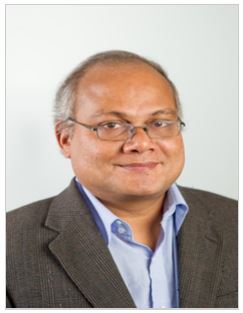Federated Learning in Resource Limited Wireless Networks
Federated learning (FL) is an efficient and privacy-preserving distributed learning paradigm that enables massive edge devices to train machine learning models collaboratively. Although various communication schemes and algorithm designs have been proposed to expedite the FL process in resource-limited wireless networks, the unreliable nature of wireless channels, device heterogeneity, and data heterogeneity are still less explored. In this talk, number of solutions solutions will be discussed for addressing the above practical challenges in wireless FL. Firstly, to tackle the unreliable wireless channels, a novel FL framework, namely FL with gradient recycling (FL-GR), which recycles the historical gradients of unscheduled and transmission-failure devices to improve the learning performance of FL will be discussed. Secondly, to solve the heterogeneity issues, partial model aggregation, knowledge aided learning and adaptive model pruning-based FL framework will be explained. Based on our research experience, some open problems of wireless FL will be provided.
Date and Time
Location
Hosts
Registration
-
 Add Event to Calendar
Add Event to Calendar
Speakers
Professor Arumugam
Federated Learning in Resource Limited Wireless Networks
Federated learning (FL) is an efficient and privacy-preserving distributed learning paradigm that enables massive edge devices to train machine learning models collaboratively. Although various communication schemes and algorithm designs have been proposed to expedite the FL process in resource-limited wireless networks, the unreliable nature of wireless channels, device heterogeneity, and data heterogeneity are still less explored. In this talk, number of solutions solutions will be discussed for addressing the above practical challenges in wireless FL. Firstly, to tackle the unreliable wireless channels, a novel FL framework, namely FL with gradient recycling (FL-GR), which recycles the historical gradients of unscheduled and transmission-failure devices to improve the learning performance of FL will be discussed. Secondly, to solve the heterogeneity issues, partial model aggregation, knowledge aided learning and adaptive model pruning-based FL framework will be explained. Based on our research experience, some open problems of wireless FL will be provided.
Biography:
Arumugam Nallanathan is Professor of Wireless Communications and the founding head of the Communication Systems Research (CSR) group in the School of Electronic Engineering and Computer Science at Queen Mary University of London since September 2017. He was with the Department of Informatics at King’s College London from December 2007 to August 2017, where he was Professor of Wireless Communications from April 2013 to August 2017. He was an Assistant Professor in the Department of Electrical and Computer Engineering, National University of Singapore from August 2000 to December 2007. His research interests include 6G Wireless Networks and Internet of Things (IoT). He published more than 700 technical papers in scientific journals and international conferences. He is a co-recipient of the Best Paper Awards presented at the IEEE International Conference on Communications 2016 (ICC’2016), IEEE Global Communications Conference 2017 (GLOBECOM’2017) and IEEE Vehicular Technology Conference 2017 (VTC’2017). He is a co-receipient of IEEE Communications Society Leonard G. Abraham Prize, 2022.
He was an Editor-at-Large for IEEE Transactions on Communications and a senior editor for IEEE Wireless Communications Letters. He was an Editor for IEEE Transactions on Wireless Communications (2006-2011), IEEE Transactions on Vehicular Technology (2006-2017), IEEE Signal Processing Letters and a Guest Editor for IEEE Journal on Selected Areas in Communications (JSAC). He served as the Chair for the Signal Processing and Computing for Communications (SPCC-TC) of IEEE Communications Society and Technical Program Chair and member of Technical Program Committees in numerous IEEE conferences. He received the IEEE Communications Society SPCE outstanding service award 2012 and IEEE Communications Society RCC outstanding service award 2014. He has been selected as a Web of Science (ISI) Highly Cited Researcher in 2016, 2022 and 2023. He is an IEEE Fellow and IEEE Distinguished Lecturer.
Email:


